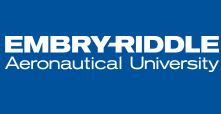
Volume
13
Issue
3
Abstract
This article highlights how differences in cognitive style paradigms, according to Adaption-Innovation (A-I) Theory, can have a positive impact in a flight training environment. This study examined twenty-four pairs of flight instructors and primary flight students who retained this relationship throughout the student's entire primary flight training experience; through to their initial U.S. civilian pilot certification, the private pilot's certificate. Dr. Michael Kirton's Adaption-Innovation Theory of cognitive style was used as the cognitive style paradigm. The instrument associated with A-I theory measures an individual's cognitive style preference on a numeric horizontal scale ranging from highly adaptive on the left to highly innovative on the right. The instrument yields four scores altogether, a main score, and three sub-scale scores: sufficiency of originality, efficiency, and rule/group conformity scores, all indicated along the adaptive-innovative scale (with different ranges). This study examined the effect that cognitive gap (differential scores between two individuals in this case) had on the flight training relationship between flight instructor and student. A gap on the third sub-scale score, rule/group conformity was found to have a significant impact on flight training efficiency, as measured by time spent in flight training until the private pilot check ride was passed by the student. It was found that significantly different scores on this scale led to a reduction in flight training time while similar scores led to an increase in time spent in flight training. The findings suggest there is a tangible benefit to some cognitive diversity in the flight training process.
Scholarly Commons Citation
Barnhart, K.
(2004).
Adaption and Innovation in Flight Training - The Benefits of Cognitive Diversity.
Journal of Aviation/Aerospace Education & Research, 13(3).
DOI: https://doi.org/10.15394/jaaer.2004.1541

